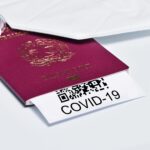Table of Contents
- An Introduction to Canada’s Beloved Family Reunification Pathway
- A Comprehensive Breakdown of the 2025 PGP Income Requirements
- Establishing Your Eligibility: Who Can Sponsor under the PGP in 2025?
- The Indispensable Role of the Notice of Assessment (NOA)
- Strategic Alternatives: Exploring the Super Visa Option
- Frequently Asked Questions (FAQ)
An Introduction to Canada’s Beloved Family Reunification Pathway
For countless Canadian citizens and permanent residents, the dream of reuniting with their parents and grandparents in Canada is a profound aspiration. Immigration, Refugees and Citizenship Canada (IRCC) facilitates this through the highly anticipated Parents and Grandparents Program (PGP). This program stands as a cornerstone of Canada’s commitment to family reunification, allowing eligible sponsors to bring their loved ones to live permanently in Canada. Each year, the community eagerly awaits updates on the program’s intake process and, most importantly, the financial thresholds required for sponsorship. As we look towards the 2025 PGP intake, understanding the updated income requirements is the first and most critical step for any potential sponsor. These requirements are non-negotiable and form the bedrock of a successful application, demonstrating a sponsor’s capacity to provide for their family members without relying on social assistance. This article serves as a detailed guide to navigating the PGP 2025 income requirements, eligibility criteria, and essential documentation needed to prepare a robust application for this competitive program.
A Comprehensive Breakdown of the 2025 PGP Income Requirements
The financial obligation is the most scrutinized aspect of the PGP application. Sponsors must prove they meet the Minimum Necessary Income (MNI) for the three consecutive taxation years preceding their application. For the 2025 PGP intake, this would typically involve providing proof of income for the tax years 2024, 2023, and 2022. It is vital to note that these MNI figures are based on Statistics Canada’s Low Income Cut-Off (LICO) figures, plus a 30% buffer. This calculation ensures that sponsors are well-equipped to support their sponsored family members financially. The required income level is directly correlated with the total number of people in the sponsor’s family unit, including the sponsor, their spouse or partner, dependent children, and the parents or grandparents being sponsored. Below is a projection of the MNI for the 2025 PGP intake for sponsors residing outside of Quebec. (Note: Quebec maintains its own distinct income requirements for sponsorship.)
Projected Minimum Necessary Income (MNI) for PGP 2025 (Outside Quebec):
| Size of Family Unit | 2024 Tax Year (Projected) | 2023 Tax Year (Projected) | 2022 Tax Year |
|---|---|---|---|
| 2 persons | $36,400 | $35,300 | $34,271 |
| 3 persons | $44,745 | $43,400 | $42,140 |
| 4 persons | $54,330 | $52,700 | $51,182 |
| 5 persons | $61,630 | $59,800 | $58,057 |
| 6 persons | $69,500 | $67,400 | $65,400 |
| 7 persons | $77,375 | $75,000 | $72,743 |
| For each additional person, add: | $7,875 | $7,600 | $7,343 |
Meeting these figures for all three years is mandatory. There are very few exceptions to this rule. A co-signer, who must be the sponsor’s spouse or common-law partner, can help meet the income requirements. Their income can be combined with the sponsor’s to reach the necessary MNI threshold. No other family member, such as a sibling, can act as a co-signer.
Key Takeaways on PGP Income Requirements:
- Three-Year Rule: Sponsors must meet the MNI for the three tax years immediately before submitting their application (2024, 2023, 2022 for the 2025 intake).
- Family Size is Crucial: The MNI is determined by the total number of people the sponsor will be financially responsible for. This calculation is a common point of error, so it’s essential to count every individual correctly.
- Proof is Paramount: The Canada Revenue Agency (CRA) Notice of Assessment (NOA) or Option C Printout is the gold standard for proving income. IRCC almost exclusively relies on these official documents.
- Co-Signer Option: Only a spouse or common-law partner can co-sign to combine incomes. They must also meet all sponsor eligibility criteria.
- Quebec Exception: The province of Quebec has its own separate financial requirements that sponsors residing there must meet.
Establishing Your Eligibility: Who Can Sponsor under the PGP in 2025?
While the PGP 2025 income requirements are a massive hurdle, potential sponsors must also satisfy several other fundamental eligibility criteria. Failing to meet even one of these can render an application ineligible, regardless of financial standing. A potential sponsor must be a Canadian citizen or a permanent resident of Canada and be at least 18 years old. Critically, the sponsor must be residing in Canada at the time of the application. IRCC requires this to ensure that the sponsor is established in the country and prepared to support their arriving family members. Furthermore, the sponsor must sign a formal undertaking, which is a legally binding contract with the Government of Canada. This undertaking promises to provide financial support for the sponsored individuals for a period of 20 years. This period begins the day the parent or grandparent becomes a permanent resident. The undertaking ensures that the sponsored relatives will not need to rely on Canadian social assistance programs. Consequently, individuals who are themselves in receipt of social assistance (for reasons other than a disability) are not eligible to sponsor. The government takes this commitment very seriously, and failure to uphold it can result in legal action to recover any social assistance payments made to the sponsored family members. Finally, sponsors cannot be in prison, bankrupt, under a removal order, or charged with a serious criminal offense.
The Indispensable Role of the Notice of Assessment (NOA)
Demonstrating that you meet the stringent PGP 2025 income requirements is not a matter of simply stating your earnings; it requires official, irrefutable proof. The primary document accepted by IRCC for this purpose is the Notice of Assessment (NOA) issued by the Canada Revenue Agency (CRA) for each of the three required taxation years. An NOA is a summary provided by the CRA after processing an individual’s tax return. It contains the key figures that IRCC will use to assess a sponsor’s income, specifically the amount listed on Line 15000 (Total Income) of the tax return. It’s imperative for potential sponsors to have their NOAs for 2022, 2023, and 2024 readily available when the PGP 2025 intake is announced. If an NOA has been misplaced, a sponsor can request an official copy or an income statement (also known as an Option C Printout) directly from the CRA through their online account or by phone. It is highly recommended to gather these documents well in advance to avoid last-minute stress, as obtaining them can sometimes take several weeks. Relying on pay stubs, letters of employment, or bank statements is not sufficient; the NOA is the definitive document that IRCC requires to validate a sponsor’s financial capacity.
Strategic Alternatives: Exploring the Super Visa Option
The Parents and Grandparents Program is notoriously popular, and for many years, IRCC has used a lottery system to issue invitations to apply. This means that even if a sponsor meets all the eligibility criteria, including the demanding income requirements, there is no guarantee of being selected. For those who are not invited to apply or for those who may not meet the MNI for the PGP, the Super Visa presents an excellent and popular alternative pathway for family reunification. The Super Visa is a multi-entry temporary resident visa that allows parents and grandparents to visit Canada for extended periods—they can stay for up to five years at a time without needing to renew their status, with the visa itself being valid for up to 10 years. One of the most significant advantages of the Super Visa is that its income requirement is considerably lower than the PGP. The financial threshold for a Super Visa is based on the standard Low Income Cut-Off (LICO) figures, without the additional 30% required for the PGP. This makes it a more accessible option for many Canadian families. Applicants for a Super Visa must also provide proof of Canadian medical insurance for at least one year. While it does not lead to permanent residence, the Super Visa provides a wonderful, flexible, and long-term solution for keeping families together in Canada.
Frequently Asked Questions (FAQ)
What is the Minimum Necessary Income (MNI) for the PGP?
The Minimum Necessary Income (MNI) is the financial threshold a sponsor must meet to be eligible for the Parents and Grandparents Program. It is calculated based on Statistics Canada’s Low Income Cut-Off (LICO) figures plus 30%, and it varies depending on the size of the sponsor’s family.
How do I prove I meet the PGP 2025 income requirements?
To prove your income, you must provide your Notice of Assessment (NOA) from the Canada Revenue Agency (CRA) for the three consecutive tax years before you apply. For the 2025 intake, this would be for the years 2022, 2023, and 2024.
What if my income is not high enough to sponsor my parents?
If your income does not meet the PGP requirements, you may be able to combine your income with that of your spouse or common-law partner, who can act as a co-signer. Alternatively, the Super Visa program is an excellent option with lower income requirements for bringing parents and grandparents to Canada for extended visits.
How is my family size calculated for the PGP income requirements?
Your family size includes yourself, your spouse or common-law partner, your dependent children, and the parents or grandparents you are sponsoring. You must count every person you are financially responsible for, even if they are not immigrating with your parents.
Talk to us to find out more. ->
The content above is not intended to provide legal advice or opinions of any kind and may not be used for professional or commercial purposes.







